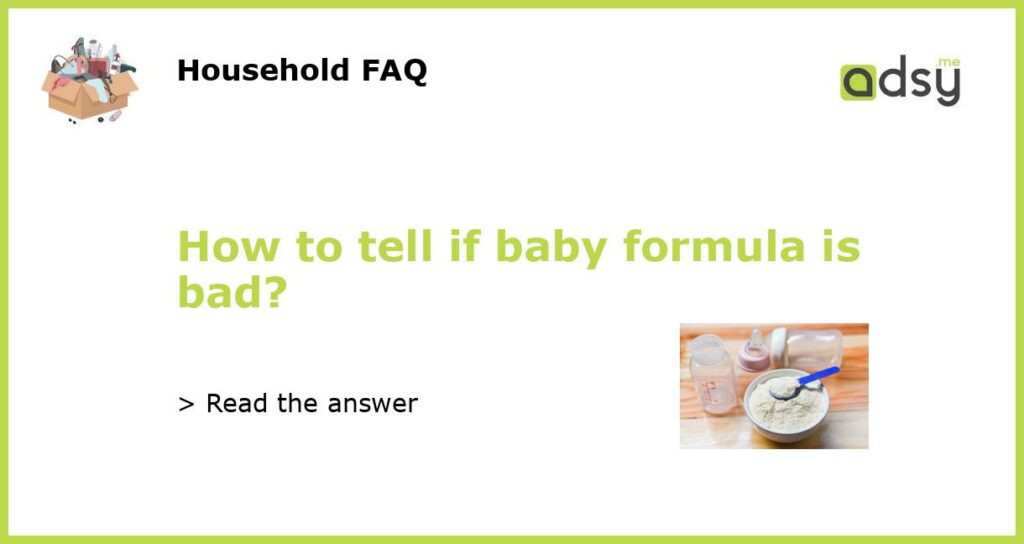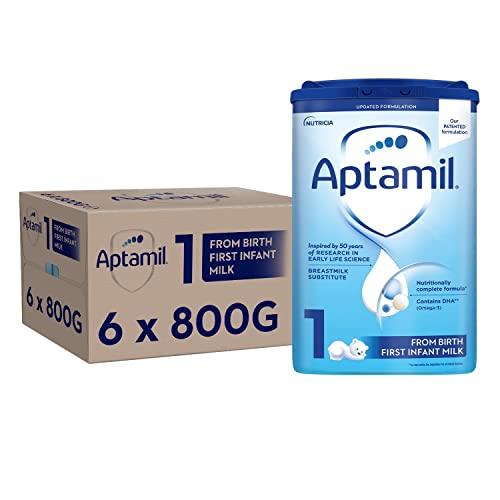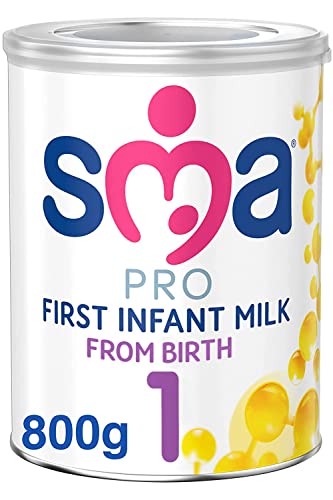What are the signs that baby formula has gone bad?
Baby formula is an important food source for infants who cannot consume breast milk. However, it’s important to ensure that the formula you’re giving your baby is safe and nutritious. One way to do this is to check for signs that the formula may have gone bad. Some common signs include:
- An unusual odor (sour or rancid smell)
- Changes in appearance (color or consistency)
- Presence of mold or insects
- Curdled or foamy texture when prepared
- Your baby exhibits signs of sickness (vomiting, diarrhea, or refusal to eat)
How can you prevent baby formula from going bad?
Preventing baby formula from going bad is important to ensure that your baby is consuming safe and healthy food. You can take the following steps to prevent baby formula from going bad:
- Check the expiration date before purchasing and using the formula
- Store the formula in a cool, dry place
- Follow the instructions for preparation carefully
- Use the formula within the recommended timeframe
- Discard any unused or leftover formula after two hours if it has come into contact with your baby’s mouth
What should you do if you suspect that baby formula has gone bad?
If you suspect that baby formula has gone bad, it’s important to take swift action. Do not feed the formula to your baby and inspect the container for any obvious signs of spoilage. Contact the manufacturer or vendor to report the issue and request a refund or replacement. If your baby has already consumed the formula and is exhibiting signs of sickness, seek medical attention immediately.
How can you choose a safe and healthy baby formula?
Choosing a safe and healthy baby formula can be daunting, given the wide variety of products available. Here are some tips to consider when selecting a baby formula:
- Choose formula that is appropriate for your baby’s age
- Look for formula that contains key nutrients (such as iron, calcium, and vitamins)
- Consider your baby’s digestive needs (e.g., cow’s milk-based, soy-based, or specialized formulas)
- Read online reviews and consult with other parents and healthcare professionals
- Buy from reputable manufacturers and vendors
What are the benefits of breastfeeding over baby formula?
While baby formula can be a safe and nutritious alternative for infants who cannot consume breast milk, it’s important to note that breastfeeding has numerous benefits for both the mother and baby. Benefits of breastfeeding include:
- Increased immunity and reduced risk of infections for the baby
- Reduced risk of breast and ovarian cancer for the mother
- Promotion of bonding between mother and baby
- Improvement of mother’s mental health and reduction of stress






